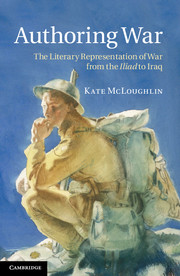5 - Diversions
Published online by Cambridge University Press: 01 June 2011
Summary
In Book 2 of the Iliad, Homer protests that describing the Greek forces is beyond him:
The multitude I could not tell or name, not even if ten tongues were mine and ten mouths and a voice unwearying, and the heart within me were of bronze, unless the Muses of Olympus, daughters of Zeus who bears the aegis, call to my mind all those who came beneath Ilios.
The actual problem is one of scale, but this disclaimer, an instance of the adynaton or impossibilia trope (discussed in more detail later in this chapter), phrases the challenge in terms of the poet's inability to ‘tell or name’ the rank and file. His capacity to enunciate is simply not up to the task. Similar linguistic disclaimers proliferate in war writing, from the most exquisitely wrought masterpieces to the hastiest scribbles home. Though the difficulties may strictly inhere in the subject matter or arise from deficiencies on the part of the reader, what are indicted are authorial debility and insufficiency of language (emphases vary between the inability of the writer to find words and the unavailability of words for the writer to find). ‘Hard would it be for me, as though I were a god, to tell the tale of all these things’, despairs Homer later in his epic (12.176–7), exposing the limitations of (even divine) linguistic resourcefulness.
- Type
- Chapter
- Information
- Authoring WarThe Literary Representation of War from the Iliad to Iraq, pp. 135 - 163Publisher: Cambridge University PressPrint publication year: 2011



